
Digitalis spp. - Plant
(MRP Inclusive of all taxes)
- Shipping ₹79 for entire order
- Country of origin: India

(MRP Inclusive of all taxes)
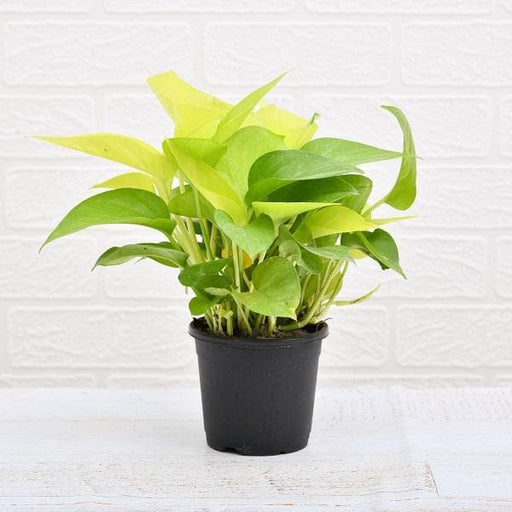 Save 29%
Save 29%
Air Purifier Money Plant with Pot The Air Purifier Money Plant, also known as Pothos or Epipremnum aureum, is a stunning indoor plant that...
View full details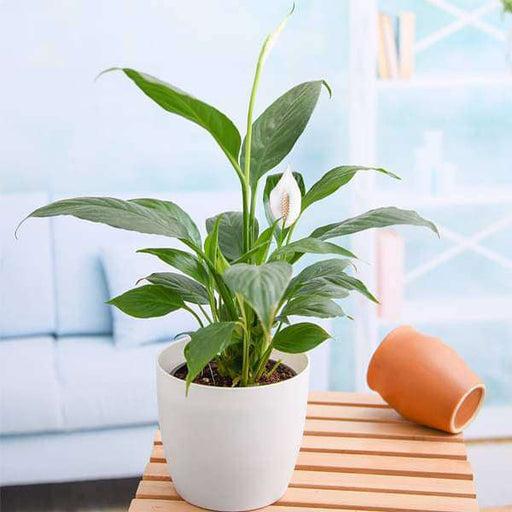
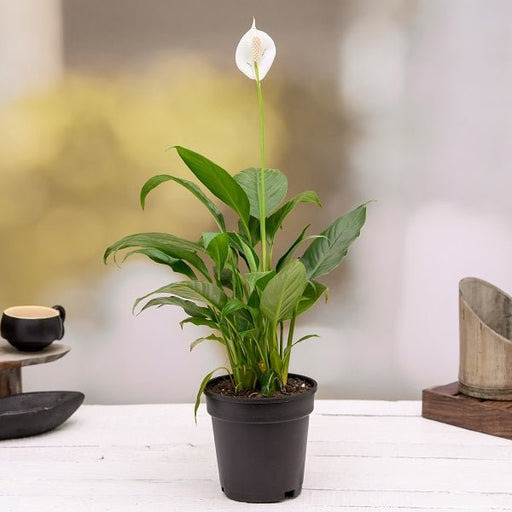 Save up to 15%
Save up to 15%
Peace Lily, Spathiphyllum - Plant The Peace Lily, scientifically known as Spathiphyllum, is a stunning houseplant celebrated for its elegant white...
View full details
 Save 25%
Save 25%
Jasminum sambac, Mogra, Arabian Jasmine - Plant Jasminum sambac, commonly known as Mogra or Arabian Jasmine, is a fragrant flowering plant...
View full details
 Save 18%
Save 18%
Combo Constituents Includes the Parijat Tree (Night-Flowering Jasmine), a culturally significant plant with fragrant flowers. Description The Pari...
View full details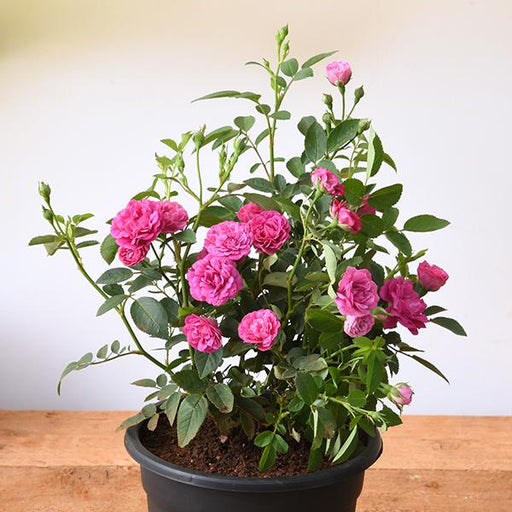
 Save 25%
Save 25%
Miniature Rose, Button Rose (Any Color) - Plant The Miniature Rose, also known as the Button Rose, is a charming and compact flowering plant that ...
View full details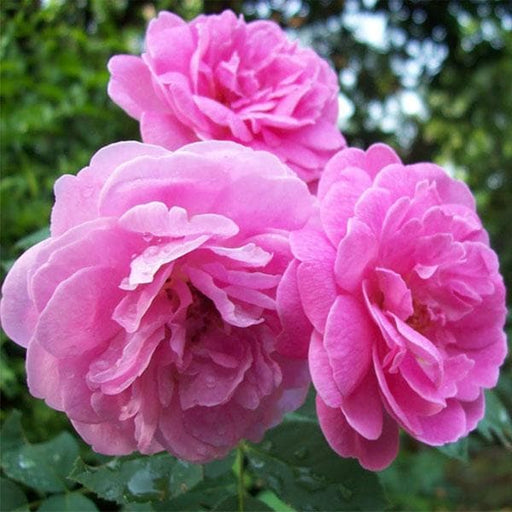 Save 25%
Save 25%
Damascus Rose, Scented Rose (Any Color) - Plant The Damascus Rose, also known as Rosa damascena, is a timeless symbol of beauty and romanc...
View full details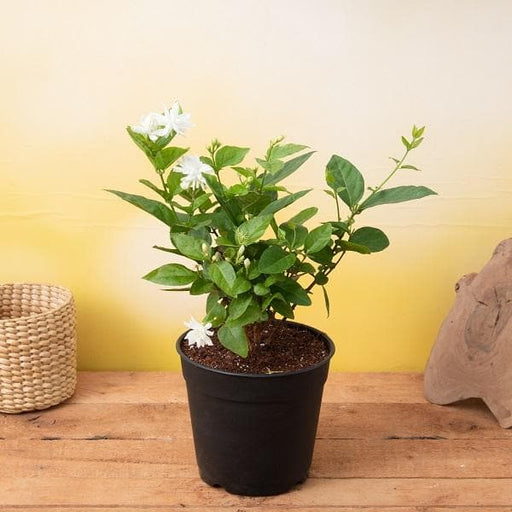
 Save 17%
Save 17%
Beautiful Fragrant Mogra, Arabian Jasmine Plant with Pot The Beautiful Fragrant Mogra, also known as Arabian Jasmine (Jasminum sambac), is...
View full details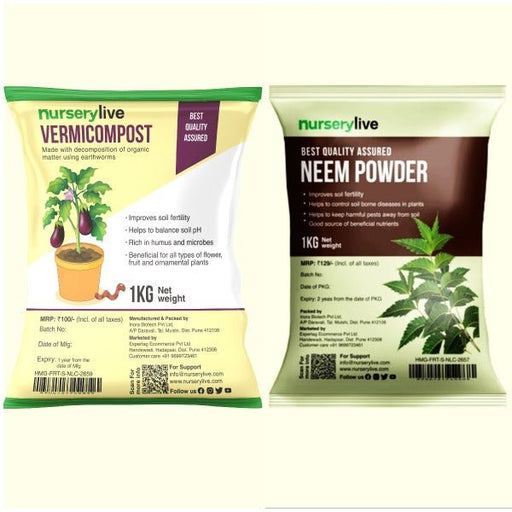 Save 15%
Save 15%
Pack of Vermicompost and Neem Cake for House Plants Transform your indoor garden with our premium Pack of Vermicompost and Neem Cake, spec...
View full details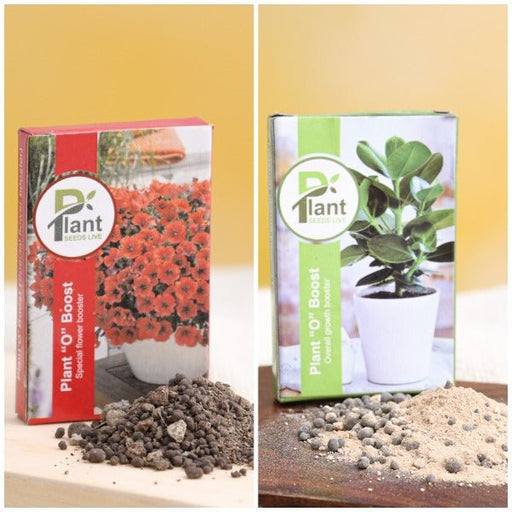
Pack of Plant Growth and Flower Boosters Unlock the full potential of your garden with our Pack of Plant Growth and Flower Boosters! This ...
View full details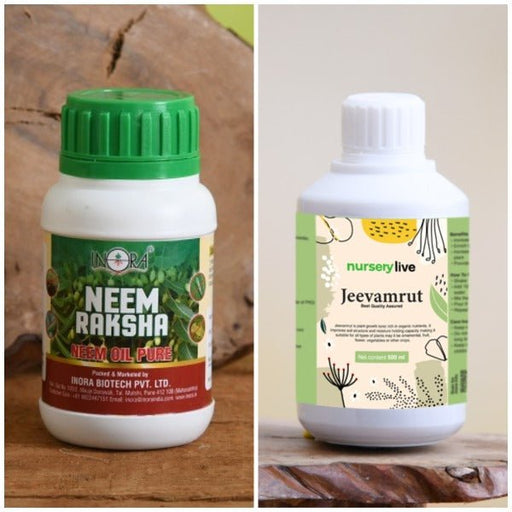 Save 38%
Save 38%
Combo of Jeevamrut and Neem Raksha for Easy Growth and Protection of Houseplants Transform your indoor garden with our exclusive combo of ...
View full details Save 22%
Save 22%
Plant Nutrients Kit (Pack of 16) for a Healthy Garden Transform your garden into a lush paradise with our Plant Nutrients Kit, featuring 1...
View full details Save 16%
Save 16%
Combo of Top Plant Fertilizers Elevate your gardening game with our exclusive Combo of Top Plant Fertilizers, featuring two bags of premiu...
View full details Save 24%
Save 24%
Pack of 4 Additives to Make Soil Healthy and Nutrient Rich Transform your garden into a thriving ecosystem with our Pack of 4 Additives de...
View full details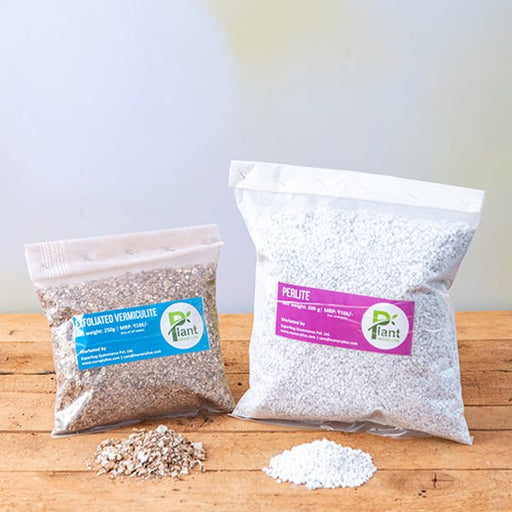 Save 30%
Save 30%
Transform your gardening experience with our premium Combo of Perlite and Vermiculite. This unique blend is designed to enhance soil aeration and ...
View full details Save 27%
Save 27%
Combo of 2 Vermicompost and Cocopeat - Enrich Your Soil Naturally! Transform your garden into a thriving ecosystem with our Combo of 2 Ver...
View full details
 Save 35%
Save 35%
Best 6 Plants for Perfect Indoor Garden Transform your living space into a lush oasis with our curated collection of the Best 6 Plants for a...
View full details
 Save up to 50%
Save up to 50%
Mini Succulent Garden Pack Transform your space with our Mini Succulent Garden Pack, featuring a delightful collection of 4 any variety beautiful s...
View full details
 Save 30%
Save 30%
5 Best Fragrant Plants Transform your garden or indoor space into a fragrant paradise with our curated selection of the 5 Best Fragrant Plants. Th...
View full details
 Save 24%
Save 24%
Set of 2 Bonsai Looking Grafted Adeniums Transform your indoor or outdoor space with our exquisite Set of 2 Bonsai Looking Grafted Adenium...
View full details Save 45%
Save 45%
Top 4 Die Hard Succulents Pack Transform your indoor or outdoor space with our Top 4 Die Hard Succulents Pack, featuring a curated selecti...
View full details
 Save 30%
Save 30%
5 Best Indoor Plants Pack Transform your living space into a lush oasis with our '5 Best Indoor Plants Pack.' This carefully curated collection fe...
View full details
 Save 25%
Save 25%
Set of 4 Evergreen Air Purifier Plant Pack Transform your indoor space into a lush, green oasis with our Set of 4 Evergreen Air Purifier Pla...
View full details| SrNo | Item Name |
|---|---|
| 1 | Digitalis spp. - Plant |
Digitalis spp., commonly known as Foxglove, is a stunning perennial plant renowned for its tall spikes adorned with tubular flowers that bloom in a variety of colors, including purple, pink, and white. Native to Europe, this plant thrives in well-drained soil and partial shade, making it a favorite among gardeners seeking to add a touch of elegance to their landscapes. Beyond its aesthetic appeal, Digitalis spp. has a rich history in herbal medicine, particularly for its cardiac glycosides, which have been used to treat heart conditions.
What makes Digitalis spp. special is its dual role as both a beautiful ornamental plant and a source of medicinal compounds. The plant's flowers attract pollinators, including bees and butterflies, contributing to biodiversity in gardens. Its striking appearance and historical significance in traditional medicine make it a unique addition to any garden.
One of the special features of Digitalis spp. is its ability to thrive in various environments, from woodland gardens to cottage-style landscapes. Additionally, its flowers can bloom from late spring to early summer, providing a long-lasting display of color. However, caution is advised, as all parts of the plant are toxic if ingested.
Ah, the magical world of Digitalis! This plant isn’t just a pretty face; it’s a heartthrob in the medicinal realm. Known for its cardiac glycosides, Digitalis spp. has been the go-to for treating heart conditions since the days when doctors wore top hats and carried canes. Just remember, while it can be a lifesaver, it can also be a heartbreaker if misused. So, always consult a professional before you start your herbal romance!
Let’s talk about the dark side of Digitalis. This plant is like that friend who seems fun at first but can turn toxic in a heartbeat. All parts of Digitalis spp. are poisonous, making it a double-edged sword in the garden. While it can help your heart, it can also stop it. So, if you’re thinking of adding this beauty to your collection, keep it away from curious pets and children. Safety first, folks!
If you want to grow Digitalis spp., you better roll out the red carpet! This diva loves well-drained soil and a bit of shade, but don’t let her fool you; she can handle some sun too. Just make sure she’s not too dry or too wet—she’s a Goldilocks plant, after all. With the right conditions, she’ll reward you with stunning spikes of flowers that’ll make your garden the talk of the town!
Digitalis spp. is like the prom queen of the plant world, attracting all the right pollinators to her floral ball. Bees, butterflies, and hummingbirds can’t resist her charming blooms. By planting Digitalis, you’re not just beautifying your garden; you’re throwing a party for the local pollinator community. So, if you want to be the host with the most, this plant is your ticket to a buzzing garden!
When it comes to Digitalis spp., variety is the spice of life! From the classic Digitalis purpurea to the more exotic Digitalis lanata, there’s a Digitalis for every taste. Each variety brings its own flair, whether it’s the color of the blooms or the height of the spikes. So, why settle for one when you can have a whole bouquet of Digitalis diversity in your garden?
Pairing Digitalis spp. with the right companions is like finding the perfect dance partner. Think of plants like ferns and hostas that can provide a lush backdrop without stealing the spotlight. These companions will enhance the beauty of your Digitalis while ensuring she doesn’t feel lonely. After all, every diva needs her entourage to shine!
Digitalis spp. has a rich history that’s more dramatic than a soap opera. Used in traditional medicine for centuries, it has been revered and feared in equal measure. From ancient herbalists to modern-day pharmacologists, this plant has played a starring role in the narrative of human health. So, when you plant Digitalis, you’re not just growing a flower; you’re cultivating a piece of history!
If you’re looking to add a touch of elegance to your landscape, Digitalis spp. is your go-to gal. With her tall, stately spikes and vibrant colors, she can transform any dull garden into a floral masterpiece. Whether used as a focal point or in a mixed border, Digitalis brings drama and sophistication. Just be prepared for compliments from neighbors who will want to know your gardening secrets!
Caring for Digitalis spp. is like nurturing a high-maintenance friend. She needs just the right amount of water, sunlight, and nutrients to thrive. Too much love (or water) can lead to root rot, while too little can leave her wilting. Regular deadheading will keep her looking fresh and fabulous. So, roll up your sleeves and get ready to pamper your Digitalis!
The history of Digitalis spp. reads like a thrilling novel filled with intrigue and drama. Once used by ancient healers, it has evolved into a staple in modern medicine. Its journey from folklore to pharmacology is a testament to its power and versatility. So, when you admire your Digitalis, remember you’re gazing at a plant that has shaped medical history!
Digitalis spp. is the ultimate garden showstopper, turning heads and dropping jaws with her stunning floral display. With colors ranging from soft pastels to vibrant purples, she knows how to steal the spotlight. Plant her in clusters for a dramatic effect, and watch as your garden transforms into a floral runway. Who knew gardening could be so glamorous?
Digitalis spp. is the gift that keeps on giving throughout the seasons. In spring, she bursts forth with lush foliage, and by summer, she’s flaunting her fabulous flowers. Even in fall, her dried seed heads add texture and interest to the garden. So, if you want a plant that offers year-round appeal, Digitalis is your perennial superstar!
Digitalis spp., commonly known as foxglove, is a stunning perennial plant famous for its tall spikes of tubular flowers. These beauties not only add flair to gardens but also have a history steeped in medicinal use. Just remember, while they look lovely, they can be a bit toxic—like that friend who’s fun at parties but not so great in the morning!
Caring for Digitalis spp. is like nurturing a diva—she loves well-drained soil, partial shade, and a sprinkle of water. Avoid soggy feet, or she’ll throw a tantrum! Prune spent flowers to keep her looking fabulous, and don’t forget to give her some space; she likes to spread her roots and show off her floral prowess!
Yes, Digitalis spp. is indeed toxic! While it may charm you with its enchanting blooms, it contains compounds that can be harmful if ingested. Think of it as the plant equivalent of a spicy dish—delicious but potentially dangerous if you overindulge. Keep it away from pets and curious children, or you might end up with a botanical drama!
Absolutely! Digitalis spp. can thrive in pots, making it a perfect choice for container gardening. Just ensure the pot has good drainage and is large enough for her roots to stretch out. With the right care, she’ll bloom beautifully, adding a touch of elegance to your patio. Just don’t forget to give her a little sunbathing time!
Digitalis spp. typically blooms in late spring to early summer, showcasing its stunning flowers. It’s like the plant’s version of a summer concert—everyone’s invited! The blooms can last for several weeks, so get your camera ready. Just remember, once the show is over, she’ll need some time to recharge for the next season’s performance!
Digitalis spp. can reach impressive heights, often growing between 2 to 5 feet tall. It’s like the plant version of a skyscraper! The height can vary based on the species and growing conditions, but one thing’s for sure: she’ll definitely make a statement in your garden. Just be prepared for her to steal the spotlight!
Digitalis spp. prefers well-drained, loamy soil that’s rich in organic matter. Think of it as the plant’s five-star hotel—she loves a comfy bed! A slightly acidic to neutral pH is ideal, so mix in some compost to keep her happy. Just avoid heavy clay or overly sandy soils, or she might throw a fit!
Yes, Digitalis spp. is a pollinator magnet! Bees and hummingbirds can’t resist her tubular flowers, making her a star in the garden ecosystem. It’s like hosting a party where everyone wants to dance! By planting her, you’re not just beautifying your space; you’re also helping our buzzing friends find a sweet snack. Win-win!
Water Digitalis spp. regularly, especially during dry spells, but don’t drown her! Aim for a balance—she likes her soil moist but not soggy. Think of it as giving her a refreshing drink without overdoing it. A good rule of thumb is to check the top inch of soil; if it’s dry, it’s time for a sip!
Yes, Digitalis spp. is a perennial, meaning she’ll return year after year, like that favorite song on the radio! However, some species are biennial, blooming in their second year. Either way, she’s a reliable garden companion, bringing beauty and charm to your landscape. Just give her the right conditions, and she’ll keep coming back for an encore!
Absolutely! Digitalis spp. can be propagated through seeds or by division. If you’re feeling adventurous, collect seeds after blooming and sow them in spring. Alternatively, divide established plants in early spring or fall. It’s like sharing the love—spread her beauty around your garden or share with friends. Just remember, she likes her space!
Digitalis spp. can attract a few pesky visitors, like aphids and slugs. Think of them as uninvited guests at a party! Keep an eye out for these critters and use organic pest control methods to send them packing. A little neem oil or handpicking can go a long way in keeping your foxglove fabulous and pest-free!